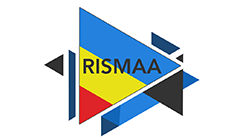Prof. dr. Ana Bazzan, Federal University of Rio Grande do Sul, Brazilia: Trying to Fix Traffic: contributions from AI
Sunteti invitati sa participati marti, 10 septembrie, incepand cu ora 14:30, in sala 335, la o prezentare facuta de catre prof. Ana Bazzan de la Federal University of Rio Grande do Sul, Brazilia, cu titlul Trying to Fix Traffic: contributions from AI.
Abstract: According to the INRIX Global Traffic Scorecard, in 2016, an average driver in Los Angeles has spent 100 hours (approximately 4 days) in traffic jams. The economic impact of this is huge. Besides, also issues related to environment is non-negligible.
Many naive solutions tend to ignore the fundamental rule of traffic: building new roads just makes people drive more, i.e., more supply creates more demand. Given the continuous growth of the world urban population and the increasing needs related to mobility of people and goods, the demand is likely to grown anyway.
Lucky, there are not only bad news here: people do adapt to congestion. Therefore, it is important to understand how this adaptive process occurs, and how to seize the opportunity to develop or enhance agent-based tools as well as reinforcement learning methods in order to contribute to the effort
of fixing traffic as much as possible. Among many others, one example here is the design of protocols and mechanisms underlying new traffic-related apps.
In this talk, I try to take a look at the present and future of this task. However, we should not throw away the past experience, despite new actors or players in this game, despite new paradigms that are starting to arise, and in spite of changes in preference by those actors (e.g., drop in car ownership among young people).
Thus, this talk reviews what we already know, as well as what we have already tried (for instance regarding the role of traffic control or regarding what can be learned from studying traffic assignment and route choice). Interesting questions here are: how can a microscopic, agent-based approach to modeling and simulation help decision-makers and traffic planners? How can new technologies, such as routing apps, microblogs, and context for prediction of patterns be incorporated to the past effort/agenda? How to most effectively use the internet of vehicles? Finally, this talk summarizes some challenges and obstacles, such as the lack of testbeds, or even the lack of validation data.
Short Bio: Ana L. C. Bazzan holds a PhD degree from the University of Karlsruhe in Germany, and is a full professor at the Informatics Institute of the Federal University of Rio Grande do Sul (UFRGS) in Brazil. She has served as general co-chair of the AAMAS 2014 and is serving as one of the PC
chairs of the PRIMA 2017 and one of the area chair of the IJCAI 2017 conference. She has served several times as member of the AAMAS (and other conferences) program committee (as PC member or senior PC member) and as an associated editor for: J. of Autonomous Agents and Multiagent Systems,
Advances in Complex systems, and Mutiagent and Grid Systems. She is a member of the IFAAMAS board (2004-2008 and 2014-). She co-organized the Workshop on Synergies between Multiagent Systems, Machine Learning, and Complex Systems (TRI 2015), held together with IJCAI 2015, and the Workshop Agents in Traffic and Transportation (ATT) series. Her research interests include MAS, ABMS, machine learning, multiagent reinforcement learning, evolutionary game theory, swarm intelligence, and complex systems. Her work is mainly applied in domains related to traffic and transportation.















